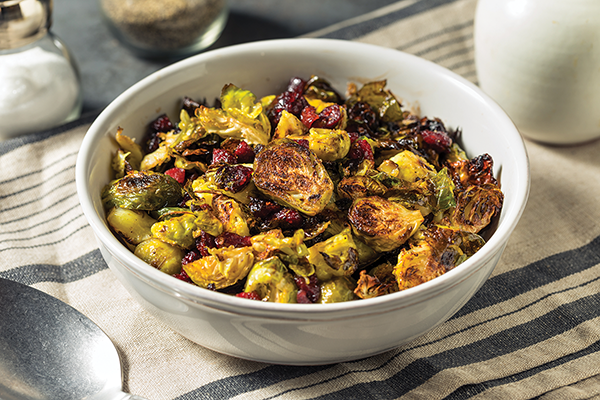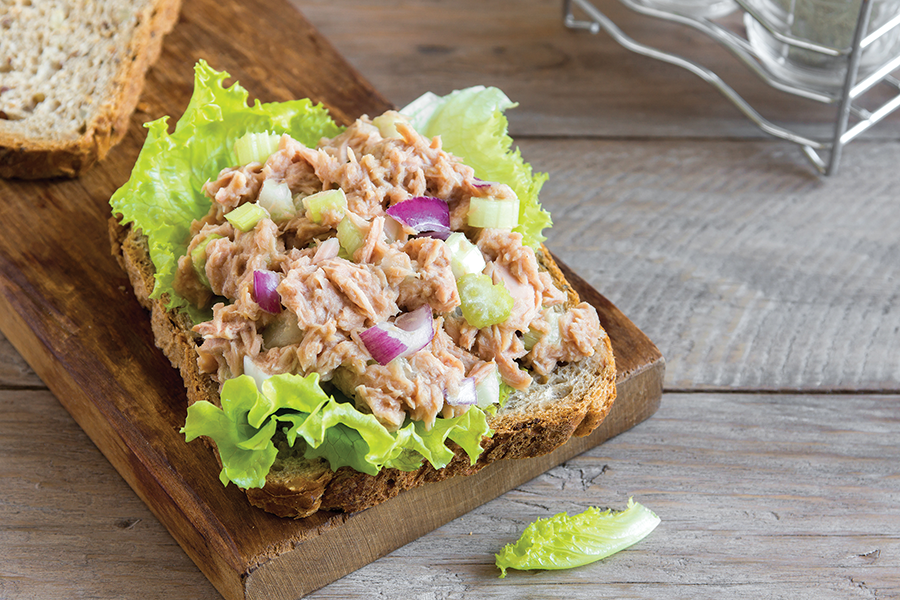Decreasing inflammation can help mitigate muscle soreness and help the muscles recover more quickly. In an article by Drs.
Kim and Lee from Kookmin University in Seoul, Korea, published in the Journal of Exercise Rehabilitation, the authors reviewed existing studies that evaluated nutritional interventions for DOMS;1 in particular, the authors of the review focused on the evidence surrounding caffeine, omega-3 fatty acids, taurine, and polyphenols.
Caffeine.
Two small studies discussed in the literature review (both studies included only nine participants—one included nine men and the other included nine women) provide some evidence that consuming caffeine in the days following weightlifting exercises can reduce pain from DOMS. The study with female participants reported that subjects consumed about two
cups of brewed coffee. According to the Mayo Clinic, eight ounces of brewed coffee can provide anywhere from 95 to 165mg of caffeine, and consuming more than 400mg of caffeine per day can cause headaches, restlessness, and anxiety in some people.3
Omega-3 fatty acids.
Omega-3 fatty
acids, especially those found in fish, contain eicosanoids, mainly eicosapentaenoic acid (EPA) and docosahexaenoic acid (DHA). Eicosanoids regulate inflammation within the body, and
as a result, can reduce DOMS.2 Drs. Kim and Lee cite several studies in their review that evaluated the effectiveness of supplemental omega-3 fatty acids in reducing DOMS following weight-bearing exercises. Some of these studies measured levels of pro-inflammatory factors, such as interleukin-6, prostaglandin E2, tumor necrosis factor-alpha, and C-reactive protein, as indicators of the effectiveness of omega-3 fatty acids in reducing muscle soreness. The studies reported that these pro-inflammatory factors were reduced among the participants who
were supplemented with omega-3 fatty acids, suggesting that omega-3 fatty acid supplements might be useful in reducing DOMS. Other studies used patient-reported measures to determine the effectiveness of omega-3 fatty acids in reducing DOMS, and these studies reported that soreness among those taking omega-3 fatty acids, compared with control groups, was reduced. In these studies, 1.8 to 3 grams of omega-3 fatty acids were used. Omega-3 fatty acids can be found in seafood such as mackerel, salmon, herring, oysters, and sardines and in plant foods such as flaxseed, chia seeds, and walnuts. Animal sources of omega-3 fatty acids are known to contain the anti-inflammatory eicosanoids.2
Taurine.
Taurine is an amino acid that adults can synthesize from the two essential amino acids, methionine and cysteine.3 Kim and Lee2 discussed two studies that reported that ingestion of taurine alone or in combination with branched-chain amino acid (BCCA) was able to reduce DOMS following intense exercise, though it wasn’t clear why. One of the cited studies observed a reduction in DOMS with a daily ingestion of 50mg of taurine over the course of 21 days; the other reported the same reduction with a combined ingestion of taurine and a BCCA supplement. Kim and Lee postulated that reducing DOMS by taurine might be related to its ability to reduce oxidative stress. Methionine plus cysteine can be found in eggs, fish, and chicken. The National Academies of Science, Engineering, and Medicine recommends consuming 8.6mg of methionine plus cysteine per pound of bodyweight, meaning a person weighing 180 pounds would want to consume 1.5g of these amino acids per day.5 This amount can be found in six ounces of chicken or salmon.
Polyphenols.
Polyphenols are found in many types of plant foods: fruits such as blueberries, cherries, and pomegranates; vegetables such as spinach, olives, and broccoli; whole grain flours, including wheat, rye, and oat; spices and seasonings like capers, dried basil, and curry powder; and even in dark chocolate and red wine.6 Two specific components of polyphenols—anthocyanins and flavonoids— are theorized to be responsible for the antioxidant and anti-inflammatory benefits that aid in the reduction of DOMS.1 The studies cited in the review article by Drs. Kim and Lee used pomegranate, cherries, and blueberries as sources of polyphenols. These studies yielded mixed results in DOMS reduction. Mainly, polyphenol supplementation via cherry, pomegranate, or blueberry juices reduced DOMS after arm exercises, but not leg exercises, and the cause of this discrepancy is not fully understood. However, eating a diet rich in polyphenols boasts other benefits such as increased insulin sensitivity, decreased blood pressure, and improved cholesterol levels.7





